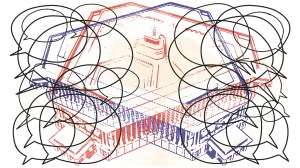India, EU agree to remove trade blocks
JUNE 29: The first-ever India-European Union summit today resulted in an agreement on removal of obstacles to boost foreign investments in...

JUNE 29: The first-ever India-European Union summit today resulted in an agreement on removal of obstacles to boost foreign investments into India and also saw EU leaders share New Delhi8217;s opposition to protectionist trends in global trade. EU leaders also backed India8217;s proposal for a comprehensive convention on international terrorism in the United Nations.
A joint declaration adopted at the end of the day-long summit attended by Prime Minister Atal Bihari Vajpayee resulted in a 22-point Agenda For Action8217; which will include joint efforts to promote and increase flows of goods and services between the two sides.
Underscoring the conviction that terrorism remains a major threat to regional and international peace and security, the European grouping also noted with deep concern the increase in drug trafficking as a global problem reinforcing international crime and terrorism.
After Vajpayee made a strong plea for EU backing for India8217;s case for permanent membership in an expanded U N security council, the declaration reaffirmed commitment of both sides to cooperating closely in identifying and furthering common interests in international organisations.
The summit was also attended by Portugal Prime Minister Antonio Guterres, who is also the European Council president, European Commission president Romano Prodi and EU officials. External Affairs Minister Jaswant Singh, Finance Minister Yashwant Sinha, Industry and Commerce Minister Murasoli Maran and Information Technology Minister Pramod Mahajan assisted Vajpayee in the deliberations. The declaration said it was important to progressively liberalise trade and to oppose protectionist trends. quot;We share the commitment towards an open, equitable and non-discriminatory rule-based multilateral trading system and we shall work together to strengthen it.8221;
The two sides stressed the importance of maintaining the momentum towards trade liberalisation and strengthening of the WTO based on an agenda that adequately reflected the interests of all members of the multilateral trading system.
In this context, it said particular importance should be given to market access for developing countries. India and the EU also decided to strengthen their traditional cooperation within the WTO.
The action plan includes launching of the India-EU round table and thinktank network, commencing joint initiatives in the fields of information technology and telecommunications, and working towards an agreement on co-operation in science and technology.
The two sides also decided to strengthen their high-level economic and commercial dialogue on bilateral and multilateral trade, economic and Financial issues.
Facilitating industry and business links and consultations on anticipatory regulatory and other measures affecting the flow of trade, investment and services were among the issues that were touched upon by the joint declaration.
- 01
- 02
- 03
- 04
- 05































